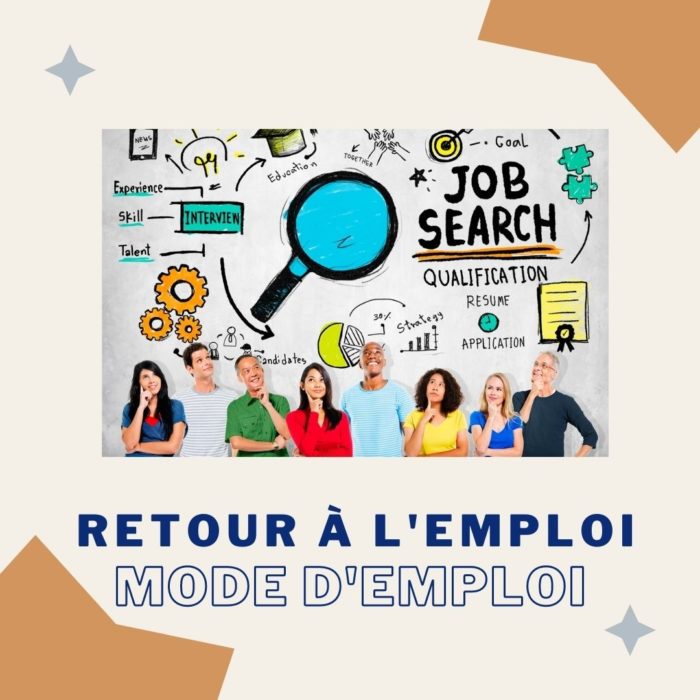
By the time people finish school and enter the job market, they most likely will end up doing what they are good at, and maybe what they enjoy. If they are lucky, they will be employed and/or doing what they love for the rest of their lives. Nowadays, however, more and more people are not satisfied with just working to put food on the table. They want to understand what they are doing and be inspired. They want to wake up every morning and look forward to the day’s work ahead.

This has led a large number of professionals to the practice of performing ‘skills assessments’ to determine if they are in the right place, professionally. But is it really necessary to do one in order to find out if one is on the right career path? To discuss this, we spoke to Isabelle Litzler, founder of Pleiades HC in the Coburo offices (www.coburo.ch), based in the city center of Geneva.
Ms. Litzler created Pleiades after 18 years of working in the Human Resources departments of different multinationals in the United States, France and Switzerland. In Geneva, she also worked for NGOs, including setting up the HR structure for GAVI alliance. All of these companies provided her with a wealth of experience that she is now using to help job seekers find the right career.
Isabelle has been counseling for as long as she can remember. She is a problem solver and likes to help people around her. While in Geneva, she realized that the job market for the expat community was challenging. Due to her international experiences, helping expats became a logical step. As part of her career solutions, she now offers her clients a full skills assessment test which can help professionals figure out whether or not they are on the best career path for them.
Do all clients need the assessments?
When a client first approaches Ms. Litzler, she starts by exploring their backgrounds and their needs. She will mostly do this by asking for the CV, but she also often has a diagnostic Skype interview with the client. Fortunately, most people have a good idea of the skills they have, and only need a bit of support to reach their next career step. However, other people are confused and need full guidance.
 Ms. Litzler has also met a number of clients who have been doing different kinds of unrelated jobs. When a CV shows many different jobs, it might mean that the person is not really sure about what he or she wants. These resumes tend to make recruiters wary. “A job seeker needs to be well-positioned on the market, have a specialty and be able to explain their career gaps,” Isabelle explains. In these circumstances, a skills assessment may be a good idea in order to bring some clarity.
Ms. Litzler has also met a number of clients who have been doing different kinds of unrelated jobs. When a CV shows many different jobs, it might mean that the person is not really sure about what he or she wants. These resumes tend to make recruiters wary. “A job seeker needs to be well-positioned on the market, have a specialty and be able to explain their career gaps,” Isabelle explains. In these circumstances, a skills assessment may be a good idea in order to bring some clarity.
Another category of clients is those people with a great track record for many years (mid-career, typically), who are now looking for a change, but who are not sure which direction to take. A career is long, and people are now often interested in many things, so they may want to experience a few different careers.
The same is true for clients who fell into a job after university studies, and who worked for a few years in a given field without validating their passion. A skills assessment could help junior professionals determine whether this career is still right for them.
How is a skills assessment done?
The typical length of an assessment period can be from two to three months, depending on a person’s availability. It typically starts with a diagnostic Skype interview in order to see if this is the right solution for the person’s career questions. Ms. Litzler then offers a “package”, which includes two in-person meetings of two hours each, and a final one hour session with Isabelle. Clients also need to be available to do the “homework”, and open to getting feedback from selected people.
After this initial phase, Ms. Litzler uses a range of assessment tools, providing a basic personality profile in order to start the conversation with the client. The tests help to clarify preferences, key skills, and typical occupations suited to a personality. Many people do not understand their strengths, or maybe downplay them because they come so naturally. These tests can therefore help someone to better understand themselves, and why they react to certain situations the way they do.
The tests give an idea of a profile, but Isabelle always checks with the clients to see whether or not they agree with the results. “Tests are a tool, however, they are not the answer to everything,” according to Ms. Litzler. After this step, Isabelle has several conversations with her customers to better understand motivations, aspirations and goals.
The final part of the Pleiades skills assessment methodology is feedback. After the initial stages, a client will have some ideas about a potential career (re)orientation, but the direction becomes clearer by talking to as many people as possible. These individuals need to be relevant to the individual’s areas of interests. This is why Pleiades HC gives a listing of contacts to test future career steps. An individual’s own network may be a good start, but Isabelle firmly believes in the importance of feedback from professionals in the area each client wishes to target. Since it is not physically possible to test different jobs to see how the skills fit in a short span of time, having interviews with feedback can help those who are interested with making decisions about which path to take.
What difference does the skills assessment make in a job search?
The reason some people may want to do an assessment is because in order to find the right job and be successful, there has to be a match between what the person wants to do and what the market needs.
Instead of the client spending months, or even years, applying for jobs that may not be suitable for him or her, it helps to perform a skills assessment as early as possible if one has questions about one’s career choices, in order to target the best options.
Isabelle also encourages people who want to move into entrepreneurship or start-up roles to consider a skills assessment. Instead of investing time and money in a project, it is a good idea to check a person’s readiness, fit, and a project’s feasibility on the market.
Is a skills assessment a necessity or a luxury?
 We are constantly growing as individuals and often as professionals, and for this reason, skills assessments should not be a once in a lifetime thing. They can be done at different times in our lives, and can help us to be aware of our strengths and what we need to improve.
We are constantly growing as individuals and often as professionals, and for this reason, skills assessments should not be a once in a lifetime thing. They can be done at different times in our lives, and can help us to be aware of our strengths and what we need to improve.
For this reason, skills assessments can also help us to avoid burnouts and displeasure in our jobs. It is therefore necessary to have the assessments done periodically.
“Our society is becoming more collaborative and less hierarchical,” Isabelle says at the end of the interview. “It is now possible to choose a career you love, and grow with it, which was not necessarily the case before.” She encourages anyone who is curious, who wants to boost their career or start a business, to contact Pleiades and make the first step in a bold new career path.
A great reminder that we all develop differently, according to opportunity, drive and experience. Checking your current skill status is a task worth doing.
True Bernard. And sometimes we do not even know how much skills we have till someone tells us.
Thank you very much for advices!